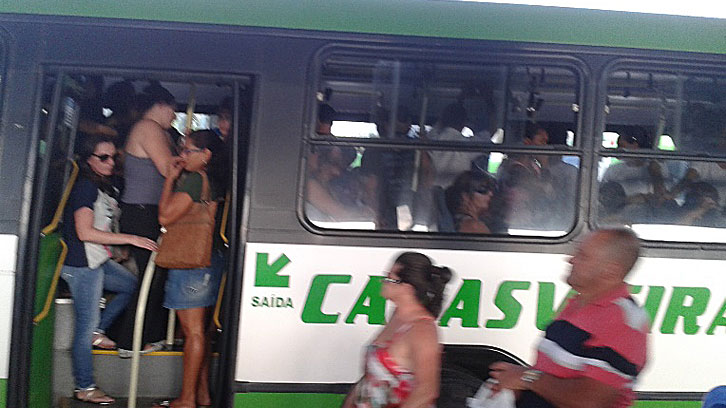Public Transportation and Urban Mobility: contradictions between public policies and the demands for mobility in the metropolitan area of Florianópolis, Brazil

Public transportation, as a condition for mobility, is essential to save time and expand interactions between different social groups. Thus, the aim of the current thesis is to go beyond the reductionist analysis of transportations and, according to the dialectical-materialist method, analyze a set of determinations affecting both the transportation and the mobility in the region. The herein investigated spatial area is the Metropolitan region of Florianópolis, Brazil, in which the most tangible determination is undoubtedly the central city (Florianópolis) insularity and the mainland-island trips made through two bridges. We found that, nowadays, the activities are still being strengthened on the island, whereas on the mainland, there is the production of mono-functional housing areas in peri-urban areas newly incorporated into the urban perimeter. This process has been led by a real estate capital regulated by very flexible rules and, sometimes, by the State itself.
Therefore, not only is there an increase in the absolute distances, which intensifies commuting, but there is also a reduction in the renewal rates of public transportation passengers due to the construction of little-mixed spaces, which negatively affects the system’s efficiency and effectiveness.
The traffic jams, which partly result from this spatial structure and from the road system limitation, also lead to low system reliability. During the high tourist season, only 56% of the trips are punctual and only 59% of them correspond to the expected demand in the insular area of Florianópolis. In addition, there is little innovation in the system, such as exclusive corridors for buses and pre-boarding terminals, and it results in mean travel times of 58 minutes by public transportation and 31 minutes by private cars, which gradually dominate the modal matrix. The private car fleet increased up to 150% in some cities in the region between 2004 and 2015.
Thus, it is worth highlighting the role played by the conservative political structures, which are inert to the restructuring of institutions related to mobility and land use planning, financing and management, since these institutions apply and encourage the implementation of new system organization techniques and forms. More than giving priority to bus operations, it is also necessary to implement more competitive transportation systems, which would work in an intermodal way, fact that depends on the economic growth level (for subsidy policies, for example), but also on the decision making derived from pacts and agreements between political and social forces.
Finally, the current thesis invites us to think about the need for stronger State presence in specific aspects of the mobility and transportation policy, namely: subsidies, institutional restructurings, the development of institutions for financing and planning, and the implementation of rules to stimulate the production of more densified and mixed spaces, thus favoring non-motorized modes as well as public transportation. On the other hand, it also leads us to think over the State political and social content and how it mirrors the unresolved contradictions of society. The result of this contradiction is the low priority given to issues such as mobility and transportation in the region and, largely, in the country, since the allocation of resources to the sector is considered dispensable.
Department of Geography – Federal University of Santa Catarina (Florianópolis City, Brazil)
References
“Transporte público e mobilidade urbana: contradições entre políticas públicas e demandas por mobilidade na região metropolitana de Florianópolis/SC”, PhD thesis by Rodrigo Giraldi Cocco, supervised byMárcio Rogério Silveira and Carme Miralles Guasch, defended in the GeographyDepartment atthe Federal University ofSanta Catarina, Florianópolis City, Brazil, in cooperation and double degree agreement with the UAB.


